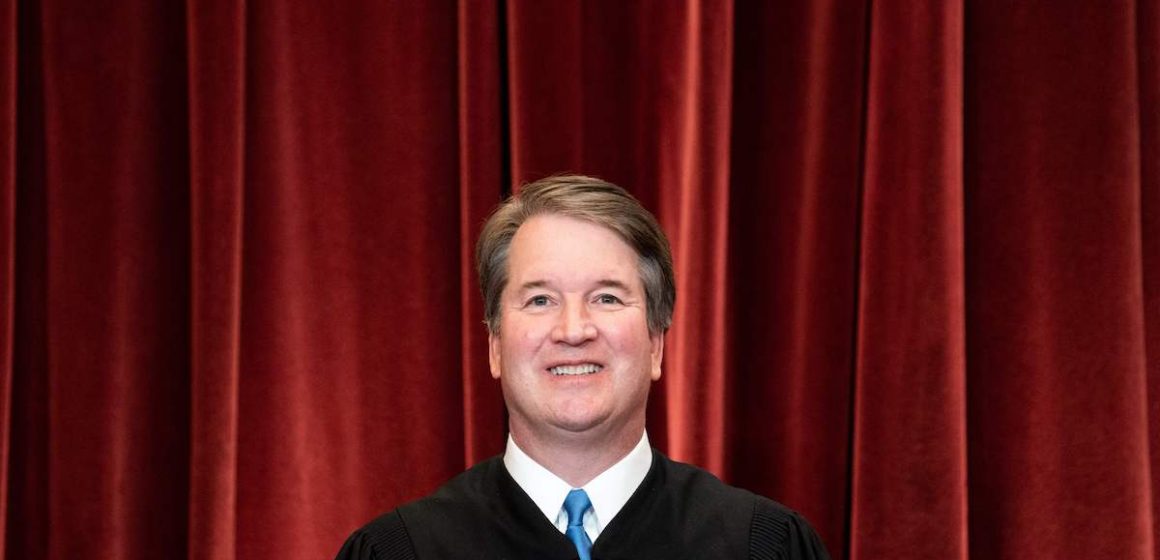As the U.S. Department of Justice and civil rights groups link arms in an effort to stop a commonwealth-sanctioned voter roll purge in Virginia, Supreme Court Justice Brett Kavanaugh’s understanding of a nearly 20-year-old legal doctrine has risen to the foreground.
In the Old Dominion, under the terms of Executive Order 35, election officials had begun removing “individuals who are unable to verify that they are [U.S.] citizens to the Department of Motor Vehicles” from the state’s lists of voters eligible to participate in the upcoming election.
To date, some 1,600 voters’ names have been removed. On Oct. 25, a federal district court put the kibosh on the program — by way of a preliminary injunction. The appeals process has worked quickly due to the impending (and ongoing) nature of the political process.
As Law&Crime previously reported, the issue, with lightning quickness, is now before the nation’s high court. By Monday, a controversy that began with an Oct. 7 complaint was transmogrified into an emergency stay request filed with Chief Justice John Roberts.
While there are numerous issues at play in the litigation, the area of election law most likely to garner attention at this stage, and at this level, has to do with the Purcell principle — the notion that courts should be cautious and hesitant to make substantial changes to state election rules in the time period just before an election.
The doctrine is sourced from the 2006 Supreme Court case of Purcell v. Gonzalez. This murky bit of precedent made itself ripe for varying interpretations by asserting that “considerations specific to election cases” should be weighed “in addition to” typical concerns governing requests for emergency injunctions and stays of injunctions.
In a 2022 concurrence, Kavanaugh carved out his own territory with a since-popularized restatement of the Purcell principle.
While an inconsistently applied admonition from the justices, Kavanaugh summarized the doctrine as standing for the proposition that “federal district courts ordinarily should not enjoin state election laws in the period close to an election.”
Kavanaugh’s definition continues:
Since that ruling, parties have been keen to cite Kavanaugh’s understanding of how the doctrine applies — perhaps in efforts to cite a still-serving member of the court and/or to elicit a direct reaction.
To hear Virginia tell it, the two lower courts that put a stop to the purge have acted far too heavy-handedly — and far too late. While the executive order instructing the current swathes of voter roll purges was issued by Gov. Glenn Youngkin, a Republican, in August, the law it interpreted was passed and signed into law in 2006.
“This burdensome mandatory injunction patently violates this Court’s Purcell doctrine,” the application reads. “This Court has repeatedly instructed that Purcell bars federal courts from enjoining the enforcement of state election laws with an election impending.”
The emergency request elaborates, quoting Kavanaugh:
And, here, Virginia says, the merits of the case are in their favor because non-citizens might now try to vote should the injunction stand.
“Not only would such a mistake potentially expose the noncitizens to criminal charges, such court-introduced errors would severely undercut the public’s faith in our electoral system,” the application goes on. “The point of Purcell is that election administration is a complicated endeavor even without judicial intervention.”
Oppositely, the DOJ and a broad coalition of pro-voting non-profits say the district court and appellate court — which did not apply the Purcell principle — would be in the right even if they were to accept the doctrine here.
And, in each instance, the plaintiffs-respondents chose the Kavanaugh iteration to make their case.
The DOJ’s 38-page brief contains the following footnote:
The voting rights groups’ 50-page brief states and then repeats:
The DOJ and the civil rights groups say Youngkin and Virginia brought this election-eve injunction on themselves by going beyond even the terms of the executive order and then declining to provide necessary documentation about the purges when originally requested in late August.
As of this writing, the Supreme Court had yet to act on the emergency appeal.
Marisa Sarnoff contributed to this report.
Have a tip we should know? [email protected]
Note: Thank you for visiting our website! We strive to keep you informed with the latest updates based on expected timelines, although please note that we are not affiliated with any official bodies. Our team is committed to ensuring accuracy and transparency in our reporting, verifying all information before publication. We aim to bring you reliable news, and if you have any questions or concerns about our content, feel free to reach out to us via email. We appreciate your trust and support!


